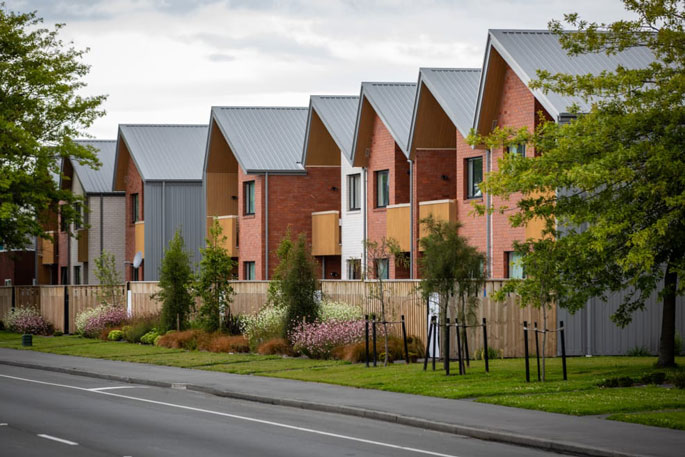Home affordability for first-home buyers is the worst it has been in 65 years, according to an economics consultancy.
Infometrics compared and analysed the total payments made by homeowners over the lifetime of their mortgage against the value of the property when the loan was repaid, to calculate the net financial gain.
Its research, which goes back to the 1940s, suggests 2022 was the worst year for first-home buyers since 1957.
"Given the increase in house prices during 2020 and 2021 and the lift in mortgage rates since the middle of last year, average first-home buyers currently face initial mortgage payments equal to 49 per cent of their income,"says Infometrics chief forecaster Gareth Kiernan.
This figure is the highest on record, surpassing the previous records of 1987 and 2007, he says.
"But the killer for current buyers is that they face committing an average of 33 per cent of their income throughout the next 25 years to repay their loan."
This compared with the 21 per cent that prevailed throughout the 2000s and 2010s.
"Young people are effectively signing themselves up for a lifetime of debt if they want to get into the housing market, with much less money left over for discretionary spending than previous generations enjoyed."
Kiernan says its research brought some perspective to the debate between baby boomers and millennials about who had it harder getting into their first home.
"Our analysis shows that even with mortgage rates below five per cent, the average home's million-dollar price means that today's first-home buyers face much less favourable financial outcomes than a buyer in 1987 did with interest rates of 20 percent."
The research also indicates that people who bought now are less likely to enjoy the capital gains seen in property values over the past decade, which would otherwise help to offset the high ongoing mortgage costs they are signing up for.
Some of the best years to have been a first-time buyer were 1949 and 1996, as interest rates stayed relatively low throughout the life of the mortgage and there was substantial price rises as well.
The worst years it found were 1955 and 1975 because the following 25 years included periods of a weaker house prices.
"Realistic house price projections for the next 25 years mean that buying in 2022 is almost as bad, financially, as 1955."
Kiernan says the most realistic path to homeownership for many young people is with assistance from the "bank of mum and dad".
"This outcome is likely to reinforce the divide between families that are homeowners and families that are not, and it strikes at the heart of New Zealand's egalitarian foundations.
"There is a social responsibility for greater political action to ensure that homeownership does not continue to slip out of reach for more and more Kiwis."
The report says the government has a responsibility to ensure the supply of new land and housing is functioning as smoothly as possible, as well as considering what measures might be necessary to assist lower-income families and the current generation of young people towards homeownership.
"It's not going to be an instant fix, but you give it 10 to 15 years, and that is a long time don't get me wrong, but this has been a problem that is also been a very long time in the making.
"We're not going to unwind it immediately."



1 comment
What's the problem?
Posted on 24-06-2022 11:42 | By The Professor
I don't think 33% of income towards a mortgage is unreasonable to be honest. How much do people expect to put towards their mortgage?
Leave a Comment
You must be logged in to make a comment.